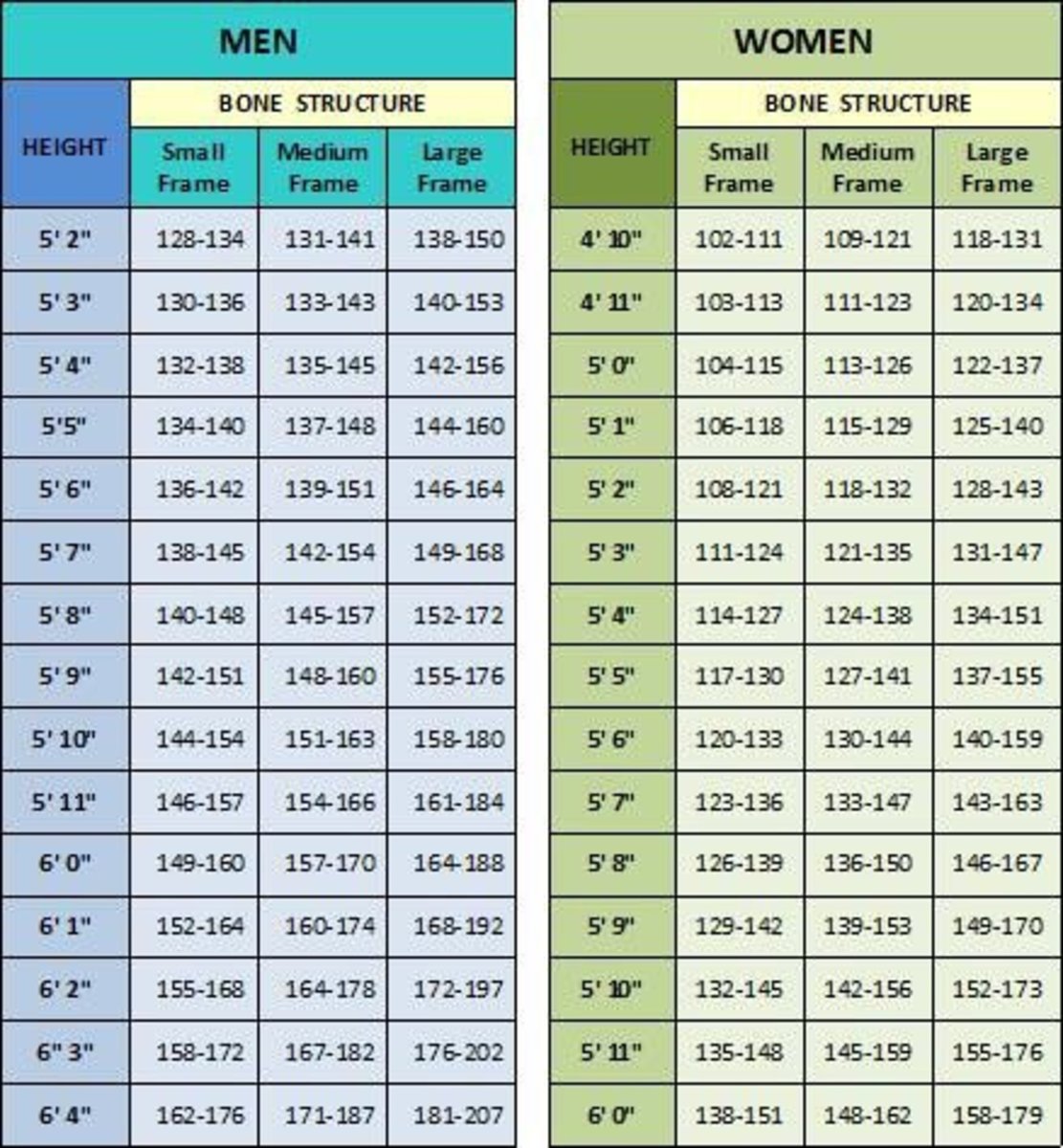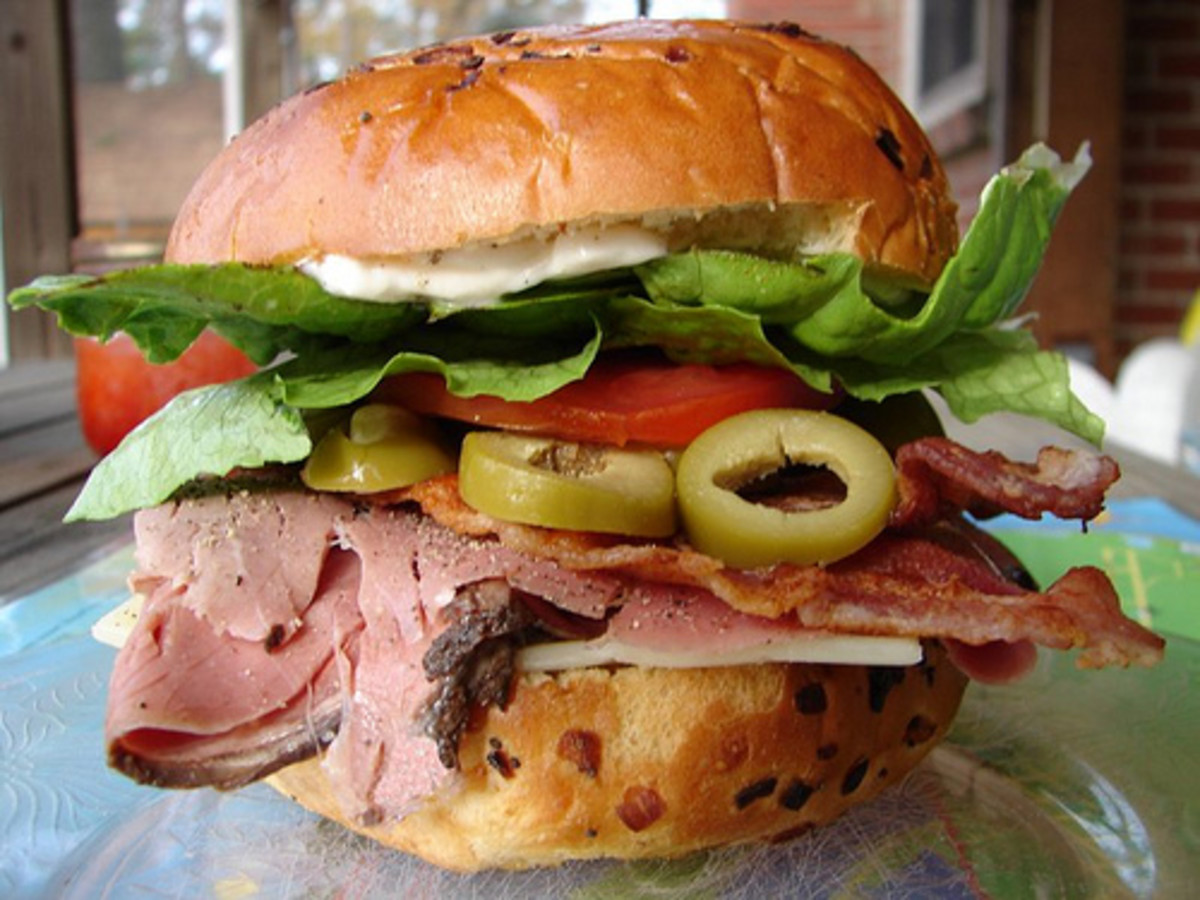Overweight? Five Common Questions.
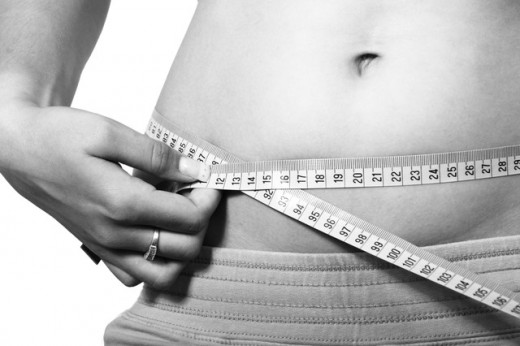
Weight and weight loss are hot topics.
With so much information (and misinformation) available, sometimes the simplest, most important questions are not asked.
If you are concerned about your weight, here are five basic factors to consider to help you, firstly, to determine if you have a problem, and if you do, to make some positive changes for a happier and healthier you.
Q1: What is My Healthy Weight Range?
Below is a chart showing the ideal healthy weight ranges for an average
person's height. This way of measuring - that is, comparing height and
weight - is called the Body Mass Index or B.M.I. Your actual B.M.I.
figure is calculated like this:
BMI = Weight (kg)
Height2 (m2)
Note:
Remember that this does not take into account factors such as excess
muscle, however it is a pretty good guide for
almost everyone.
To use it, find your height either on
the left or right of the chart, then move your finger sideways through
the chart until it meets the line from your current weight.
If
you land in the white area, you are underweight. Buff is the normal
weight range, peach is overweight and pink is obese.
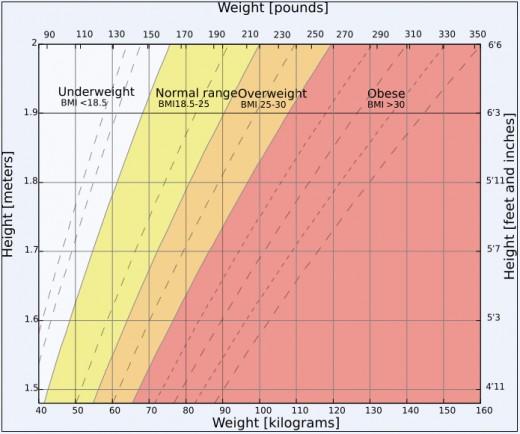
Q2: What is a Balanced Diet?
Eating a balanced diet simply means eating a
combination of foods which provide your body with the right amount of
nutrition. An unbalanced diet means that your food intake is either
deficient or excessive in one or more areas.
The reason a
balanced diet is important is that it keeps you healthy, energetic and
at a weight appropriate to your frame.
These are the basic
guidelines when planning meals for your family:
- The major part of your diet should be wholegrain and multigrain breads and cereals.
- You should eat a lot of vegetables and fruit.
- Eat some dairy products and some meat, chicken, fish, eggs or legumes.
- Eat only a very small amount of fat, oils, sugar and sweets.
The amount of calories in daily food should only be as much as your body needs. Exercising burns calories, which allows you to eat more food.
It can be helpful to stick a copy of the "Food Pyramid" picture onto your refrigerator for easy reference, and to help educate your family in healthy eating.
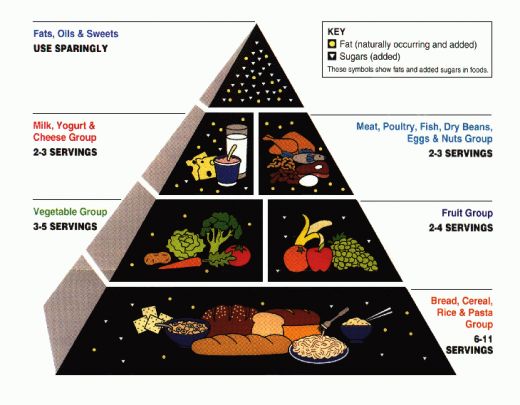
Q3: How Much Food Do I Need Just To Exist?
Your BMR or Basal Metabolic Rate,
is the rate at which you burn calories/kilojoules just existing - that
is, the number of calories your body uses when you are lying down and
not moving.
By knowing your BMR, you can gauge how many
calories/kilojoules you can safely consume in a given time, and not
store excess fat.
There are so many factors involved with each
individual - not just age and gender, but climate, anxiety, fitness and
so on - that it is impossible to precisely measure your BMR.
However,
the World Health Organization has come up with a formula so that you
can get an approximate indication of BMR.
Imperial BMR
Formula
Women: BMR = 655 + ( 4.35 x weight in pounds ) + (
4.7 x height in inches ) - ( 4.7 x age in years )
Men: BMR = 66 + (
6.23 x weight in pounds ) + ( 12.7 x height in inches ) - ( 6.8 x age in
year )
Metric BMR Formula
Women: BMR = 655 +
( 9.6 x weight in kilos ) + ( 1.8 x height in cm ) - ( 4.7 x age in
years )
Men: BMR = 66 + ( 13.7 x weight in kilos ) + ( 5 x height in
cm ) - ( 6.8 x age in years )
Contrary to what many people tell
you, being overweight actually increases your metabolic rate,
because you need more energy to move and maintain your heavier body.
As
you
begin to lose weight, you will need to adjust your calculations to
account for your metabolism slowing down because you are smaller and
lighter.
Q4: Exactly What Causes Excess Fat?
Your body needs energy in able to exist. It gets this energy from the
calories/kilojoules you put into it when you eat and drink.
If
you put in more calories/kilojoules than your body can use, the body
stores this energy as fat. If you put in less than your body needs, the
body then converts the fat back into energy and uses it.
You use
up energy just by being alive - in breathing, keeping warm, your heart
beating and so on. The amount of energy you use in just existing is
called the Basal Metabolic Rate, or BMR. In an average person, this
amounts to about 60% of the energy used.
You then need
additional energy to move your body - that is exercise, even if it is
just nodding your head. On average, moving your body uses about 30% of
the energy you take in.
Finally, you use energy to actually eat,
digest and process food. This is called dietary thermogenesis, so
called because of the heat generated by this function. This uses the
other 10% of energy in an average person.
The trick to
controlling weight is to get our bodies into balance. We need to
consume just the right amount of calories/kilojoules that the body will
use.
To lose weight, we need to consume less calories/kilojoules
than the body is using, allowing the body to burn off the excess fat as
fuel.
Q5: Do I Have "Fat Genes"?
In April, 2007, for the first time a gene that contributes to obesity
was discovered by British scientists.
Those
who inherit this particular version of gene are 70 percent more likely
to be obese, and one out of six people has the gene, which simply
increases the risk of obesity. These people on average have 15 percent
more body fat and weigh an average of 3kg more than those without the
gene.
As people inherit every characteristic they have, even if
a person doesn't have this particular "fat" gene, he or she could still
have inherited a larger appetite, a slower metabolism and so on.
So
yes, it is quite possible that you and/or I have "fat genes".
The
important
fact to concentrate on is that even if you are one of those
who happens to have a genetic tendency towards obesity, it doesn't mean
that you should simply give up.
All it means is that
maintaining a healthy weight may be a little harder for you. No, it's
not fair, but everybody is dealt certain benefits and certain
disadvantages by nature. It's up to us to be responsible for our own
bodies, and deal with any issues the best way we can.
Perhaps in
the not too distant future, scientists might be able to help us
overcome genetic problems by shutting off the responses which cause
unhealthy fat gain and retention.
In the meantime, understanding
our own bodies and how they respond to food and exercise is the best
weapon we have against obesity.


